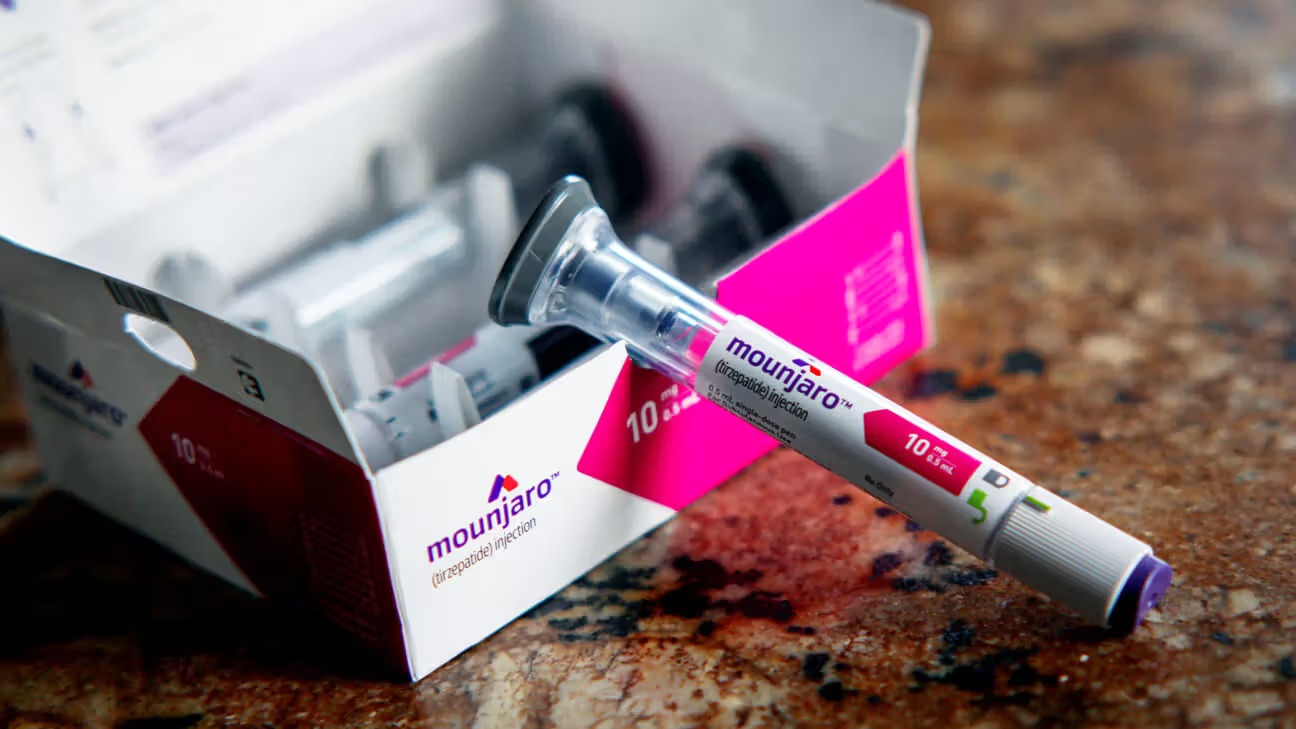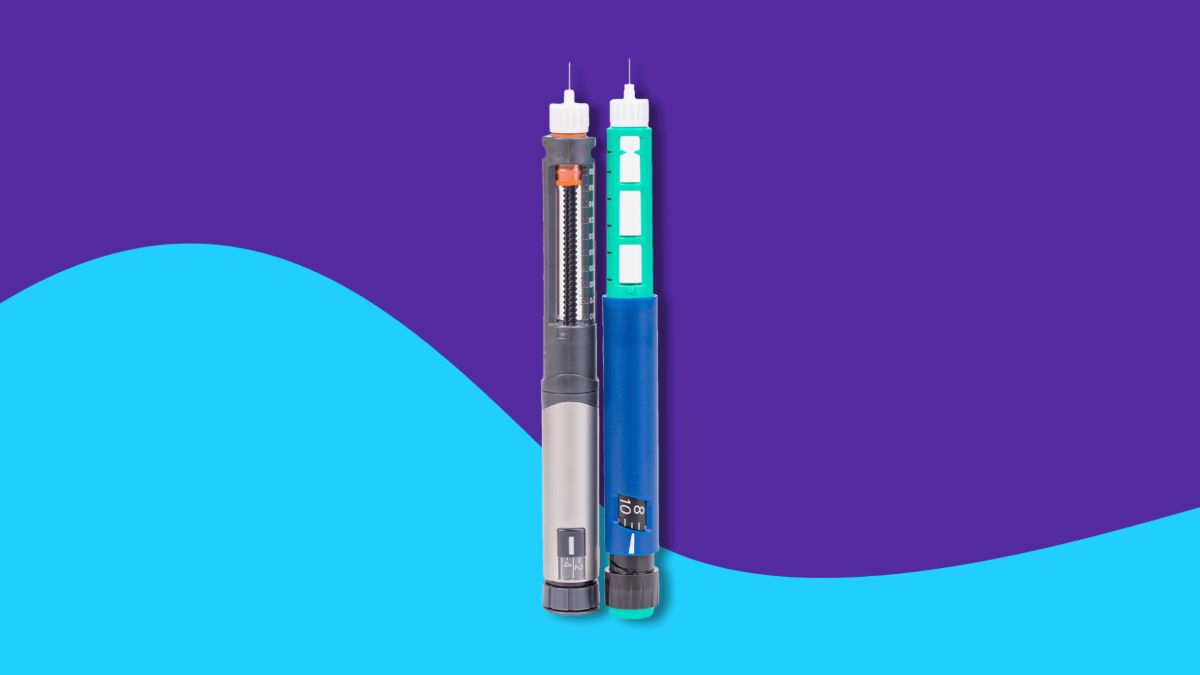

Finance
What Insurance Covers IVF In NY?
Published: November 10, 2023
Discover what insurance options cover IVF in NY and how they can help finance your fertility treatments.
(Many of the links in this article redirect to a specific reviewed product. Your purchase of these products through affiliate links helps to generate commission for LiveWell, at no extra cost. Learn more)
Table of Contents
Introduction
In vitro fertilization (IVF) is a widely popular fertility treatment that helps couples struggling with infertility to conceive a child. This assisted reproductive technology involves the fertilization of eggs outside the woman’s body, followed by the implantation of the embryo(s) into the uterus. However, the cost of IVF can be expensive, often reaching tens of thousands of dollars per cycle, which poses a significant financial burden for many individuals and couples.
The good news is that some insurance plans provide coverage for IVF treatment. In the state of New York, there are specific laws and regulations in place to ensure that individuals have access to fertility treatment coverage through their health insurance. Understanding the intricacies of insurance coverage for IVF in New York can help individuals and couples make informed decisions about their fertility journey.
This article will delve into the topic of insurance coverage for IVF in New York, providing valuable information on the requirements for coverage, the limits and restrictions imposed by insurance providers, available insurance options, and financial assistance programs that can ease the financial burden of IVF treatment.
Whether you are considering IVF or currently undergoing treatment, having a clear understanding of insurance coverage for IVF in New York is crucial for minimizing out-of-pocket expenses and ensuring access to the care you need.
Understanding IVF
In vitro fertilization (IVF) is a complex and widely used fertility treatment that has helped millions of individuals and couples achieve their dream of parenthood. It involves several steps and medical procedures to assist in the conception of a child. Understanding these steps can help individuals navigate the IVF process with greater clarity and confidence.
The process of IVF typically begins with ovarian stimulation, where medications are administered to the woman to stimulate the ovaries to produce multiple eggs. This is followed by the retrieval of the matured eggs through a minor surgical procedure. On the same day as the egg retrieval, the male partner provides a semen sample, which is then used to fertilize the eggs in a laboratory setting. This process is known as insemination.
After fertilization, the embryos are monitored for several days to ensure their development. The healthiest embryos are then selected for transfer into the woman’s uterus. The embryo transfer is a relatively simple procedure that involves placing the embryos into the uterus using a thin catheter. Following the transfer, a period of rest and observation is usually recommended to increase the chances of successful implantation.
About two weeks after the embryo transfer, a pregnancy test is conducted to determine if the IVF cycle was successful. If the test is positive, it means that implantation has occurred, and pregnancy has begun. If the test is negative, it means that the IVF cycle was not successful, and further discussions with the medical team may take place to assess the next steps.
It is important to note that IVF success rates can vary depending on various factors, including the age of the woman, the quality of the eggs and sperm, and the overall health of the individuals undergoing the treatment. It is advisable to consult with a fertility specialist to assess the chances of success and explore any potential alternatives.
While IVF can be a time-consuming and emotionally challenging process, it has provided hope and joy to countless individuals and families around the world. Understanding the nuts and bolts of IVF is crucial for making informed decisions and embarking on this journey with confidence.
Insurance Coverage for IVF in New York
Insurance coverage for in vitro fertilization (IVF) in New York is governed by specific regulations known as the New York State Infertility Demonstration Program. These regulations ensure that insurance plans offered in the state include coverage for infertility diagnosis and treatment, including IVF.
Under these regulations, insurance plans in New York are required to provide coverage for IVF for individuals or couples who meet certain criteria. However, the level of coverage and specific requirements may vary depending on the insurance plan. It’s important to thoroughly review your insurance policy or consult with your insurance provider to understand your specific coverage.
In general, insurance plans in New York must cover the cost of IVF treatment for individuals or couples if:
- The patient is the policyholder or the policyholder’s spouse or partner.
- The patient has been diagnosed with infertility, which is defined as the inability to conceive after one year of unprotected sexual intercourse (or six months for women over the age of 35) or the inability to sustain a successful pregnancy.
- The patient has not reached the maximum age limit for treatment, which is typically 44 years old.
- The IVF treatment is performed at a licensed fertility clinic.
It’s important to note that not all insurance plans offer comprehensive coverage for IVF. Some plans may have limitations or restrictions on the number of IVF cycles covered, the age limit for treatment, or the required duration of infertility. It is essential to review your insurance policy or consult with your insurance provider to understand the specific details and limitations of your coverage.
Additionally, it is common for insurance plans to require prior authorization for IVF treatment. This means that individuals or couples must obtain approval from their insurance company before beginning IVF treatment in order to ensure coverage.
Understanding your insurance coverage for IVF in New York is crucial for planning and budgeting for your fertility treatment. It is highly recommended to consult with both your fertility specialist and insurance provider to fully understand the scope of your coverage and any potential out-of-pocket expenses you may be responsible for.
Requirements for Insurance Coverage
In order to be eligible for insurance coverage for in vitro fertilization (IVF) in New York, there are certain requirements that need to be met. These requirements ensure that individuals or couples seeking IVF treatment fall within the parameters outlined by insurance providers and regulations.
One of the main requirements for insurance coverage for IVF in New York is a diagnosis of infertility. Infertility is typically defined as the inability to conceive after one year of unprotected sexual intercourse (or after six months for women over the age of 35) or the inability to sustain a successful pregnancy. A formal diagnosis from a licensed fertility specialist is usually required to validate the need for IVF treatment.
Another requirement is that the IVF treatment must be performed at a licensed fertility clinic. This ensures that the treatment is conducted by qualified medical professionals in a regulated and safe environment. It is essential to verify that the fertility clinic you choose is licensed and meets all the necessary standards and guidelines.
Age also plays a role in the eligibility for insurance coverage for IVF. While the maximum age limit may vary among insurance plans, it is typically set at 44 years old. Individuals or couples who are older than the maximum age limit may face challenges in obtaining coverage for IVF treatment. In such cases, it is advisable to consult with a fertility specialist to explore alternative options and discuss the potential risks and success rates associated with IVF treatment at an advanced age.
Additionally, insurance plans may have specific requirements related to medical documentation, prior authorizations, or referrals from primary care physicians. It is essential to carefully review your insurance policy or consult with your insurance provider to understand the specific requirements and procedures that need to be followed in order to qualify for coverage.
It’s important to note that meeting the requirements for insurance coverage does not guarantee full coverage of IVF treatment expenses. While the diagnosis of infertility and adherence to the mentioned guidelines are necessary for eligibility, the level of coverage and potential out-of-pocket expenses can vary among insurance plans. It is crucial to thoroughly review your insurance policy and discuss the details with your insurance provider to understand the extent of coverage and any potential financial obligations that may arise.
By understanding the requirements for insurance coverage for IVF in New York, individuals and couples can better navigate the process and ensure they meet the necessary criteria to maximize their chances of securing coverage for their fertility treatment.
Limits and Restrictions on Insurance Coverage
While insurance coverage for in vitro fertilization (IVF) in New York offers financial assistance for fertility treatment, it’s important to be aware of the limits and restrictions that may apply. These limitations can impact the extent of coverage provided and the financial responsibility of individuals or couples seeking IVF treatment.
One common restriction is the limitation on the number of IVF cycles covered by insurance. Some insurance plans only provide coverage for a certain number of IVF cycles, typically ranging from one to three cycles. If the treatment is not successful within the covered number of cycles, individuals or couples may be responsible for the full cost of subsequent cycles. It is important to review your insurance policy to understand the number of cycles covered and the potential financial implications beyond the covered cycles.
Another limitation is the requirement of prior authorization. Insurance plans may mandate that individuals or couples obtain prior approval from the insurance company before undergoing IVF treatment. This ensures that the treatment is deemed medically necessary and meets the specific criteria outlined by the insurance plan. Failure to obtain prior authorization may result in the denial of coverage and could lead to significant out-of-pocket expenses.
The age limit for IVF treatment is another factor that can impact insurance coverage. While the maximum age limit can vary among insurance plans, it is typically set at 44 years old. Beyond this age, individuals or couples may face challenges in obtaining coverage for IVF treatment. It is advisable to consult with a fertility specialist to explore alternative options and discuss the potential risks and success rates associated with IVF treatment at an advanced age.
It’s essential to consider that insurance coverage for IVF in New York may not include all the associated costs. Additional expenses such as medications, fertility testing, genetic screening, and cryopreservation (freezing of embryos) may not be fully covered by insurance. Understanding the specifics of your coverage and any potential out-of-pocket expenses is vital for accurate financial planning.
Finally, it is important to note that insurance coverage for IVF may vary depending on the type of insurance plan, including employer-sponsored plans, individual plans, or Medicaid. Each plan may have its own set of limitations, restrictions, and requirements. Reviewing your policy in detail and consulting with your insurance provider will help you gain a better understanding of the coverage specifics and any potential limitations you may encounter.
Being aware of the limits and restrictions on insurance coverage for IVF in New York will empower individuals and couples to make informed decisions, plan for potential expenses, and explore alternative financial assistance options if necessary. It is advisable to consult with both your fertility specialist and insurance provider to fully understand the extent of your coverage and any potential financial responsibilities.
Available Insurance Options
When it comes to insurance coverage for in vitro fertilization (IVF) in New York, there are various options available to individuals and couples seeking fertility treatment. It’s important to explore these options to find the insurance plan that best suits your needs and financial circumstances.
One common option is employer-sponsored insurance plans. Many employers offer health insurance benefits that include coverage for infertility treatments, including IVF. It is advisable to review your employee benefits package or consult with your human resources department to determine if your employer-sponsored insurance plan provides coverage for IVF. Be sure to understand the specific coverage limits, restrictions, and requirements outlined in the plan.
Individual health insurance plans are another option for obtaining coverage for IVF in New York. These plans can be purchased through the insurance marketplace or directly from insurance providers. It is important to thoroughly review the policy details, paying attention to any infertility treatment coverage included and any specific limitations or restrictions that may apply.
Medicaid is a government-funded healthcare program that provides low-income individuals and families with insurance coverage. While the coverage for IVF through Medicaid varies from state to state, New York does offer some level of coverage for infertility diagnosis and treatment, including IVF. It is important to verify your eligibility for Medicaid and understand the specific coverage limitations and requirements in the state of New York.
In addition to traditional health insurance plans, some specialized insurance programs cater specifically to infertility treatments. These programs are designed to provide comprehensive coverage for fertility treatments, including IVF. These programs often offer more extensive coverage and may have fewer limitations compared to standard health insurance plans. It is recommended to research and compare different specialized insurance programs to find one that aligns with your specific needs.
It’s important to keep in mind that each insurance option may have its own set of limitations, restrictions, and requirements. Factors such as coverage limits, pre-authorization requirements, age limits, and out-of-pocket expenses can vary among different insurance plans. Thoroughly reviewing and comparing the policies, as well as consulting with insurance providers and fertility specialists, will help you make an informed decision that aligns with your individual circumstances.
If your current insurance plan does not provide coverage for IVF or if you have limited insurance options, there are alternative resources and financial assistance programs available. These include grants, scholarships, and financing options specifically tailored for fertility treatments. Exploring these options can help alleviate the financial burden of IVF and make the treatment more accessible.
By understanding the available insurance options and exploring alternative resources, individuals and couples can make informed decisions about their fertility treatment journey and ensure they have access to the financial support they need for IVF in New York.
Financial Assistance Programs
For individuals and couples seeking in vitro fertilization (IVF) treatment in New York, there are various financial assistance programs available to help alleviate the financial burden associated with fertility treatments. These programs offer financial support, grants, and discounts specifically tailored to assist individuals in their journey towards parenthood.
One option is to explore fertility clinic programs that offer their own financial assistance initiatives. Many fertility clinics have in-house programs or partnerships with external organizations to provide financial support to their patients. These programs may offer discounted treatment packages, payment plans, or financial assistance based on financial need. It is recommended to inquire with your chosen fertility clinic about any available financial support options.
Several nonprofit organizations also provide financial assistance programs for IVF treatment. These organizations offer grants and scholarships to individuals and couples who demonstrate financial need and meet certain eligibility criteria. Examples include the Baby Quest Foundation, the Pay It Forward Fertility Foundation, and the Cade Foundation. Each organization has its own application process, requirements, and deadlines, so it is important to carefully review their guidelines and submit an application accordingly.
Some pharmaceutical companies and fertility medication manufacturers also provide assistance programs. These programs may offer discounted or donated fertility medications for individuals in need. It is advisable to research and reach out to these companies directly for information on any available fertility medication assistance programs.
Additionally, certain financial institutions offer loans or financing options specific to fertility treatments. These loans are intended to help cover the costs associated with IVF, including medical fees, medications, and other related expenses. It is essential to carefully review the terms and interest rates associated with these loans before making any decisions, ensuring that the loan option fits within your budget and financial circumstances.
When pursuing financial assistance programs, it is important to gather all the necessary documentation requested, including financial statements, medical records, and any other relevant paperwork. Adhering to the guidelines and deadlines set by each program will ensure you have the best chance of receiving financial assistance.
Finally, reaching out to support groups and online infertility communities can provide valuable insight and advice on available resources. Many individuals who have gone through IVF themselves are often willing to share their experiences and knowledge about financial assistance programs that they found helpful during their own journeys.
While the cost of IVF treatment can be overwhelming, these financial assistance programs can help make fertility treatment more accessible. It is important to research and explore all available options to find the financial support that aligns with your individual circumstances and provides the necessary assistance for your IVF journey.
Employer-sponsored Insurance Plans
Employer-sponsored insurance plans can be a valuable resource for individuals and couples seeking coverage for in vitro fertilization (IVF) treatment in New York. Many employers offer health insurance benefits that include coverage for infertility treatments, including IVF. Understanding the options and requirements of employer-sponsored insurance plans can help individuals and couples make informed decisions about their fertility treatment.
Employer-sponsored insurance plans vary in their coverage for IVF, so it’s important to review your specific plan details. Some plans offer comprehensive coverage for IVF treatment, including diagnostic testing, medications, and the procedure itself. Others may have limitations or restrictions on the number of IVF cycles covered or the specific criteria that must be met for eligibility.
When considering IVF coverage through an employer-sponsored plan, it is advisable to review the plan’s summary of benefits or contact the human resources department to obtain information about specific coverage details. Key points to consider include:
- The extent of IVF coverage: Determine what aspects of IVF treatment are covered, including diagnostic testing, consultations, medications, and the actual procedure. Some plans may cover the complete range of IVF services, while others may have limitations on certain components.
- Coverage limitations and criteria: Understand any limitations or criteria that must be met to qualify for IVF coverage. This may include requirements such as prior authorization, a specific diagnosis, or a waiting period before the coverage becomes effective.
- Out-of-pocket expenses: Assess your potential out-of-pocket expenses, such as deductibles, copayments, and coinsurance rates. Some plans may cover a percentage of the IVF costs, leaving individuals or couples responsible for the remaining portion.
- Network providers: Determine if there are preferred providers or a network of fertility clinics that must be used to receive coverage. Going out-of-network may result in reduced coverage or increased out-of-pocket expenses.
It is important to note that not all employers offer insurance plans that include coverage for fertility treatments like IVF. If your employer-sponsored plan does not provide adequate coverage, you can explore alternative insurance options, such as individual health insurance plans or specialized insurance programs that cater specifically to fertility treatments.
In some cases, employers may offer flexible spending accounts (FSAs) or health savings accounts (HSAs) as part of their benefits package. FSAs and HSAs allow employees to set aside pre-tax dollars to use towards eligible medical expenses, including IVF treatment. Utilizing these accounts can help reduce the out-of-pocket costs associated with IVF.
Understanding and utilizing your employer-sponsored insurance plan for IVF coverage in New York can significantly reduce the financial burden of fertility treatment. It is recommended to thoroughly review the plan details, consult with the human resources department, and communicate with healthcare providers to fully understand the coverage options and requirements available to you.
Medicaid Coverage for IVF
Medicaid, a government-funded healthcare program, provides insurance coverage to eligible individuals and families who have limited financial resources. While Medicaid coverage for in vitro fertilization (IVF) varies from state to state, New York does offer some level of coverage for infertility diagnosis and treatment, including IVF.
In New York, Medicaid provides coverage for fertility services, including diagnostic testing, fertility medications, and certain infertility treatments. IVF may be considered an eligible treatment option for individuals or couples who meet specific criteria set by the state.
To be eligible for Medicaid coverage for IVF, individuals or couples typically have to meet the income requirements and demonstrate medical necessity. The specifics of the eligibility criteria and coverage limitations can vary, so it is important to contact the local Medicaid office or visit the state Medicaid website for detailed information.
It is important to note that while Medicaid may cover certain aspects of IVF, there may still be out-of-pocket expenses associated with the treatment. These expenses can include copayments, deductibles, and any services or medications that are not covered by Medicaid.
It is recommended to consult with a fertility specialist who participates in the Medicaid program to learn about the specific IVF coverage details. The fertility specialist can provide guidance on how to navigate the process, submit necessary documentation, and obtain approval for IVF treatment under Medicaid.
Additionally, it is important to be aware that the availability of IVF coverage through Medicaid may be limited, and there may be a waiting list or a finite number of slots available for coverage. Due to this limitation, it is advisable to explore alternative insurance options or financial assistance programs to increase access to IVF treatment.
Understanding the specifics of Medicaid coverage for IVF in New York is crucial for individuals or couples who meet the income requirements and are seeking fertility treatment. Consulting with both a fertility specialist and the local Medicaid office will provide valuable information on eligibility, coverage, and any potential out-of-pocket expenses that may apply.
Remember to thoroughly review the Medicaid guidelines and speak with knowledgeable professionals to ensure a clear understanding of the coverage options and requirements provided by Medicaid for IVF treatment in New York.
Conclusion
Insurance coverage for in vitro fertilization (IVF) in New York can provide much-needed financial support for individuals and couples navigating the challenging journey of fertility treatment. Understanding the intricacies of insurance coverage, requirements, limits, and available options is essential for making informed decisions and minimizing the financial burden.
New York state regulations ensure that insurance plans offer coverage for IVF, as long as individuals or couples meet specific criteria, such as a diagnosis of infertility and treatment at licensed fertility clinics. However, coverage can vary among insurance plans, with limitations on the number of IVF cycles covered and potential out-of-pocket expenses.
Exploring available insurance options, such as employer-sponsored plans, individual health insurance plans, Medicaid, or specialized insurance programs, can provide individuals with a range of choices. Employer-sponsored plans often offer coverage for IVF, while Medicaid offers coverage based on specific eligibility criteria. Specialized insurance programs and financial assistance programs can help individuals access the necessary support.
It’s crucial to fully understand the limits and restrictions placed on insurance coverage, including age limits, prior authorizations, and coverage limitations. Additionally, exploring financial assistance programs and alternative funding options can alleviate the financial burden associated with IVF treatment.
By thoroughly researching insurance policies, consulting with both fertility specialists and insurance providers, and considering all available financial assistance programs, individuals and couples can make informed decisions about their fertility treatment and access the support they need while minimizing out-of-pocket expenses.
The journey towards parenthood through IVF can be challenging, but having a clear understanding of insurance coverage options and financial assistance programs in New York can provide hope and relief. Remember to closely review policy details, seek guidance from fertility specialists and insurance providers, and utilize available resources to make the best choices for your individual circumstances.
Ultimately, with the right support and financial knowledge, individuals and couples can embark on their IVF journey with confidence, focusing on building their families while easing the financial strain associated with fertility treatment.














